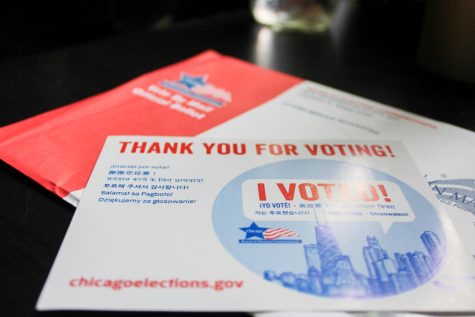Autism bill victim of political feuds
September 22, 2008
When Mary Kay Betz found out her 2-year-old son had autism, she was told he might never speak and would likely end up institutionalized. Refusing to give up hope, Betz said she sought out the best treatment possible for her son.
Her persistence paid off, and after years of intensive therapy, Betz said her son Riley, now 8 years old, is basically “recovered” and behaves like most other children his age.
But his success came at a high financial cost. Though they have health insurance, Betz and her husband, who live in Montgomery, Ill., wiped out their savings and took out a home equity loan to pay for Riley’s treatment, she said, as insurance companies in Illinois are not required to cover autism therapy-but that could change.
Support and advocacy groups like the Autism Society of Illinois, Autism Speaks and the Arc of Illinois, an organization that provides services and support for the developmentally disabled, have been lobbying state lawmakers to pass legislation that would require insurance companies to cover up to $36,000 per year for physical, occupational, speech and behavioral therapies and treatments.
But nothing got past the state legislature to become law, despite support in both the Illinois House and Senate.
“It’s really unfortunate that this is not getting passed,” said Constantine Bitsas, executive director of the Autism Society of Illinois. “At this point, I’m at a loss as to why it keeps on getting stalled.”
Senate Bill 1900 was introduced in February by Sen. James DeLeo (D-Chicago), but stalled in the House in July.
After its failure, Gov. Rod Blagojevich used his amendatory veto powers to write the language from Senate Bill 1900 into an unrelated bill, House Bill 4255, which was originally intended to require insurance companies to cover preventive physical therapy for people with multiple sclerosis.
Many state lawmakers viewed Blagojevich’s use of the amendatory veto to rewrite the bill as a questionable use of his power and voted to override his rewrite on Sept. 10.
“For the governor to take legislation and completely rewrite it is dangerous, because where does it start and stop?” State Rep. Lou Lang said in an interview with CBS2Chicago.com. “This vote was not about being heartless; this vote was about our constitution.”
While Illinois lawmakers fight it out in Springfield, families of autistic children across the state are growing more and more frustrated.
“We need the government to put aside their differences and work together on this,” said Tony Paulowski, executive director of the Arc of Illinois. “The climate in Springfield is just not conducive to getting any legislation passed, and nothing is moving forward.”
As one of the voices for autistic people and their families at the capital, the Arc of Illinois regularly hears from frustrated parents, Paulowski said.
In addition to the failed bills, this year Blagojevich made large budget cuts to programs that provide services and support to people with developmental disabilities.
More than $100 million was cut from the state’s budget for services for the developmentally disabled, and Illinois ranks 47th in the nation when it comes to providing community services, Paulowski said.
Betz said she is extremely frustrated and disappointed that Illinois does not seem to take developmentally disabled citizens as seriously as it should, and that many parents are spending their life savings and going into debt to get adequate care for their children.
“Autism is treatable if you have the funds to pay for it,” Betz said. “If autism is caught at an early age and if [the child] can get the intensive therapy they need, it can mean the difference between whether they will live in a group home or whether they will be able to live on their own.”
Over Riley’s lifetime, the taxpayers of Illinois will save about $3.2
million because he won’t need to be institutionalized, Betz said. If more autistic children were able to get into early intervention programs and get needed therapies, it would save the state a significant amount of money, she said.
The Autism Society does not plan to give up on this legislation, Bitsas said, though they will wait until after the November elections to lobby for it again.
“The support [for the bill] is there, it just needs to be introduced in the right way,” Bitsas said. “We may not be there yet but I do believe it will ultimately get there.”
Though the financial burden has been heavy for her family, Betz said they don’t regret the choice they made to get Riley the care he needed.
“I always told myself that if we had to live in a box, then we would live in a box to get our son back,” Betz said.

















